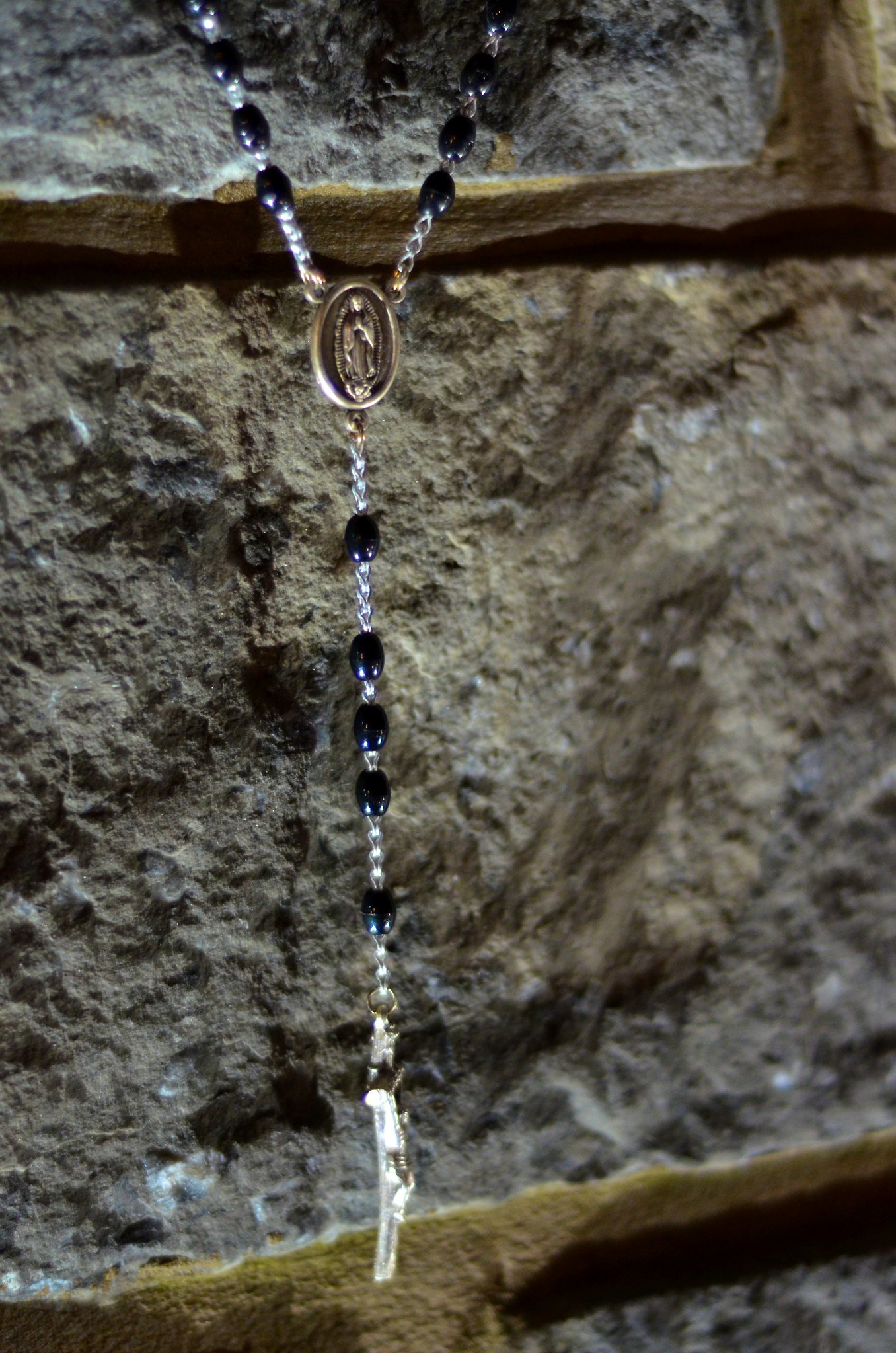Apparently thousands of French would like to be and one man is taking the Catholic Church to court. This NPR piece is interesting to me not so much for the trends (more people are not just leaving the church but wanting to remove all trace of connections to the church) but for the theological questions it brings up.
“One can’t be de-baptized,” says Rev. Robert Kaslyn, dean of the School of Canon Law at the Catholic University of America.
Kaslyn says baptism changes one permanently before the church and God.
“One could refuse the grace offered by God, the grace offered by the sacrament, refuse to participate,” he says, “but we would believe the individual has still been marked for God through the sacrament, and that individual at any point could return to the church.”
I am sure my protestant and Catholic friends will debate this far more eloquently than I. If one can “refuse the grace offered by God” then what is the permanent change that Kaslyn believes in? Would this be the case for purgatory, that such an individual is now and forever “marked as one of Christ’s own forever” whether they like it or not? The benefit of baptism would be that they get eternity to “work out their salvation”? Or what? I am beginning to think that I really am more ignorant than I realized regarding the theology of baptism…







5 thoughts on “Can one be “de-baptized”?”
I guess the question is that if one does not believe in God, then why do they believe that baptism means anything at all? If your belief is that it is just water splashed on someone’s head or you were dunked because your parent is a nutjob then that’s just what it is. Water and nutty parents. It only means more if one believes it to be so. Sure many people believe it means something and will say that once you are baptized you are forever baptized, but that’s their views, not required to be held by you (even though your head had water and scented oil put on it). The difference is, parents, in most cases, chose for the child to be sprinkled on. These people are asking religious folks to invent something that is totally not in the belief system. It doesn’t work that way. People aren’t going to magically believe you can be de-baptized because it hurts your feelings that your mom dunked you in a tub of water and now you are pissed about it because that club isn’t for you. (take it up with your mom) Telling someone to change their beliefs is exactly what people are always fighting against! “Don’t tell me what to believe but wait…let me tell you what to believe” just doesn’t seem right coming from either direction.
Also, baptisms are not Catholic specific. The Catholic religion recognizes a baptism no mater where it took place or by which denomination. Also, ANYONE, not just a priest can perform the baptism (I get all my knowledge FROM folks teaching in the church so if you want to argue me, argue them instead.) I threatened many times to baptize my kids myself in the bath b/c I was pissed at what a royal pain in the ass these things are to plan and satisfy the inlaws goofy ideas about stupid parties and such and I had a very memorable encounter with a horrid mean priest, but I digress….
If one wants a baptism to go away, then just hold the view that it is water and goofy parents, not some special magical potion. Because if you believe it does hold power and you still want to be a Christian than you’re golden! B/c it does cross club boundaries.
You can hate the Catholic church. Go ahead. There are lots of things I can’t stand either. I detest the things some folks at my alma mater did and are STILL doing. I hate the things that people at Penn State did and everything those individuals stand for. I hate that there are individuals everywhere that do bad things. But the great thing is….I know that they don’t represent everyone in those organizations and I can, and did in many cases, walk away. It is called being an adult and making up my own mind.
It’s water people. It’s not like your parents tattooed the daylights out of you, it was water. Grant it whatever power over your life that you want. I think choosing to live happily seems like a better way to go. But maybe conflict is your thing…
Thanks honeydo! Wow, that is a nice long post. I am going to assume that “you/your” throughout your comment is meant in the general sense since I am largely in agreement with you. I certainly understand that baptism is not simply a Catholic tradition and that the Catholic church recognizes baptism by others, lay and clergy alike. (With the notable exception of baptism not performed in the name of the Trinity, such as those in the Mormon church. They are not recognized.) I agree that, like all sacraments, on some level it is only meaningful to those who impart meaning upon the event.
So to the atheist, Msr LeBouvier, it is just water. But what I believe he is fighting for is that all evidence of any connection with the organization (here the RC Church) be removed. What I wonder is, would one be allowed to, say, have the fact that one belonged to the Communist party in France expunged from the record? If I change my ideology later in life can I have any affiliation erased from my personal history? That would seem unlikely, so why in this case?
Yes, the you/your is in general 🙂 I just rambled…I didn’t go back and write properly as I should.
As for political affiliation I guess I like to think of things this way….if one grows and changes in their beliefs than both things can be altered. Many people convert from one religion to another just as others to with political affiliation. It comes down to whether or not you believe people can change. We all like to think people can change through rehabilitation…..the abuser will stop being abusive. Or the thief will become a giver and not a taker. Or someone who can’t or won’t, will. If we believe people can and do change then it reasons that any belief can be changed as well.
In practice it may not always be so. But I like to hope that change is possible.
hmmm just re-read some of that. I agree….you can’t erase your history.
I think you see where I was going. It is not a question of can one change their mind/opinion and join another political group or religious one. Obviously we can. The question is, if he is successful in having his “affiliation” with the RCC completely removed then why couldn’t he also have the fact that he was (hypothetically) a member of some other organization removed as well. We all know a few politicians who would like to be able to do that!